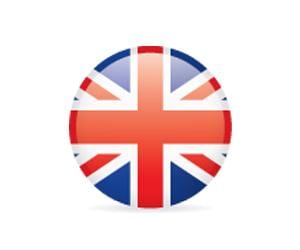UK remote gambling remains stable, betting shops fall

The UK Gambling Commission (UKGC) has said in a new report that although gross gambling yield from remote betting, bingo and casino sources remains steady, it noted a decline in the number of land-based facilities in the national market.
Total gross gambling yield in the UK in the period from October 2014 through to September 2015 amounted to £12.6 billion (€15.2 billion/$17 million), up from the £11.2 billion collected between April 2014 and March 2015.
The £3.6 billion generated by remote gambling represents 29% of the total figure, but remains relatively steady in comparison with the previous period, due to new point of consumption tax regulations.
Elsewhere, the number of betting shops open in the UK fell 1.9% from 8.975 in March 2015, to 8,809 in the most recent period, while the total number of arcades also dropped 11.1% to 1,721.
In addition, the number of B2 machines in betting shops declined 0.5%, while the amount of bingo premises dropped 10.1% to 599.
UKGC programme director James Green said: “Today we are publishing clear authoritative data on the gambling industry in Great Britain.
“For the first time the figures include almost a full year’s worth of data relating to online gambling operators – the market share of the online betting, bingo and casino sector is 29% and we'll be interested to see how this varies over time.
“Offline we’re seeing changes; for instance, there's been a reduction in the number of betting shops, arcades and bingo halls in the last two years.
“Market trends and consumer participation research are key to shaping the Commission's regulatory policy to keep gambling in Britain safe for consumers, fair, and crime-free.”
Meanwhile, the UKGC has issued a warning to operators that offer betting markets on pre-recorded television programmes, stating that such companies must assess the associated risks of such services in order to uphold ‘licensing objectives’.
The national regulatory body was responding to several media reports that have highlighted integrity issues for those operators that offer such services to customers.
Speaking in an open letter to operators, Richard Watson, programme director for enforcement and intelligence at the UKGC, said that the reports “appear to have originated from the operators themselves who purport to have either over-exposed their liability or identified integrity concerns tenuously linked to the programme or event”.
Watson said this is “damaging” to both the producers and broadcasters of such programmes, as well as the general public and the wider perception of gambling in the UK.
He added: “In a world of social media and rapid communication, the outcome of these markets is likely to be known to an ever-expanding group of consumers before the result is formally announced.
“We therefore require operators of these markets to demonstrate a robust management of the associated risks in order to ensure they uphold the licensing objectives.
“As outlined in our statement of principles for licensing and regulation, amongst other things, we expect operating licence holders, those occupying senior positions within licensed operators and Personal Management Licence holders responsible for marketing to conduct their business with integrity, organise and control their affairs responsibly and effectively, and have adequate systems and controls to keep gambling fair and safe.
“If we become aware that these standards are not being met, we will commence licence reviews with a view to exercising our formal regulatory powers on both the operator and the Personal Management Licence.”
Related article: UK and Portuguese regulators secure new partnership
